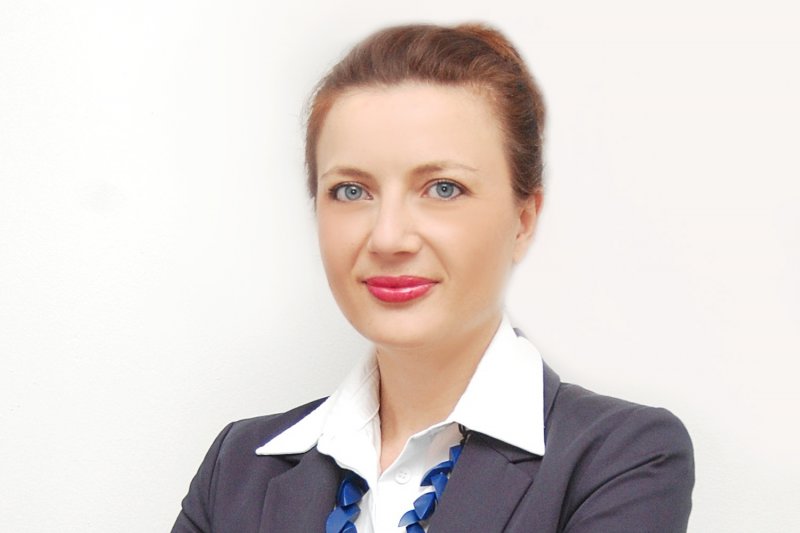Expected Shift in Leadership in Skopje
“Public sentiment, as indicated by most recent polls, suggests a probable shift in leadership in North Macedonia. This is the prediction by Dr. Adela Gjorgjioska, founder and director of Arete Institute for Sustainable Prosperity, who also teaches political communication at the Institute for Communication studies in Skopje in an exclusive interview with Albanian Daily News.
According to her analysis, the enduring struggle with governance concerns, coupled with the misallocation of public assets and resources, has continued to plague the country, and Dr Gjorgjioska highlighted corruption as a predominant issue, eroding trust in the political system and in the judiciary to an unprecedented low.
Asked about the impact of the June 2024 elections for the European Parliament on the enlargement process, she was of the opinion that inthe realm of EU enlargement, the European Parliament holds a comparatively modest influence, relative to the Council and Commission.
Dr. Gjorgjioska noted that the overall relations between Albania and North Macedonia most definitely can and should be more extensive. “The same issues which cause backtracking domestically are also the reason behind slow progress in bilateral relations: bad public governance, lack of imagination and interest in focusing on the issues that matter: cooperation and connectivity in business, education, science and culture,” said Gjorgjioska in the following interview:
Albanian Daily New:In the first place may I wish you a successful 2024 and welcome you in this first talk with Albanian Daily News. To start with, could you say a few words on what North Macedonia left behind in 2023 and the expected developments in 2024 with the main event – the Parliamentary elections which will be held on May 8, 2024, together with the second round of presidential elections?
Macedonian Dr. Adela Gjorgjioska: In 2023, Macedonia faced the persistent socio-political and economic challenges that have carried over from previous years. The enduring struggle with governance concerns, coupled with the misallocation of public assets and resources, has continued to plague the country. Corruption emerged as a predominant issue, eroding trust in the political system and in the judiciary to an unprecedented low. 2023 also witnessed a stark absence of positive reforms or substantial infrastructural advancements, and prospects for such initiatives remain slim in the coming year. The year marked the conclusion of the current DUI-SDSM Coalition Government's second term, setting the stage for parliamentary and presidential elections scheduled for April/May 2024. Public sentiment, as indicated by most recent polls, suggests a probable shift in leadership. The upcoming elections are expected to dominate the landscape in 2024. They hold a profound significance, because they will symbolize the ultimate reckoning for the DUI-SDS Coalition. Originating from the aftermath of the so-called Colorful Revolution, which took down the previous Government, their tenure has been marred by disastrous outcomes, witnessing a deterioration in every conceivable facet of socio-economic life. The pervasive nature of corruption and the blatant arrogance of political elites have reached unprecedented levels.
In 2023, the nation was shaken by a series of major scandals, notably the shocking revelation of a criminal network within the Skopje Oncology and Radiology Clinic. This network siphoned valuable medications to the black market in Kosovo, while cancer patients were subjected to inadequate treatment. Another scandal unfolded within the Aviation agency of the Republic of North Macedonia M-Nav, where nepotism and corruption jeopardized air traffic safety. These incidents have implicated the DUI/BDI party, which has long concealed massive crime and corruption behind an ethnic shield. With public trust in the judiciary dwindling to a mere 2%, there is a growing hope that new political parties will enter parliament, fostering change and steering away from corruption to prioritize the public interest in both the Albanian and Macedonian political blocs, for the interest of the country as a whole.
- Elections for the European Parliament will take place 6-9 June 2024. According to you, what will their impact on the enlargement process of the countries of the Western Balkans?
- In the realm of EU enlargement, the European Parliament holds a comparatively modest influence, relative to the Council and Commission. On the other hand, these two often clash on enlargement, as exemplified by instances like Council President Charles Michel proposing a 2030 membership timeline in Bled, only to face immediate contradiction from EC President Ursula Von Der Leyen.
However, fixating on enlargement can lead to misplaced focus, casting us in a subordinate position of idealizing the EU. This allows political elites to wield it as a distraction from their failures and a misleading portrayal of having a political plan and ideology - which they often lack. Independent MEPs like Clare Daly and Mike Wallace highlight that the EU is frequently influenced by corporate interests rather than serving the people. Encouraging more representatives like Mike and Clare in the European Parliament could expose these false narratives and prompt a shift toward a people-centric union, challenging the current corporate-oriented structure. Prioritizing the interests of the people should be the primary criterion for evaluating EU politicians, domestic leaders, and the enlargement process itself.
- How do you assess the tense relations between Kosovo and Serbia a development unfolding when in general the atmosphere is turbulent worldwide because of the Russian aggression in Ukraine and the war between Israel and Palestinians?
- The profound human tragedies unfolding in Ukraine and Palestine underscore a collective failure as humanity. Urgent shifts are imperative in how the international community is organized to prevent such devastations. Vigilance is crucial to prevent the Balkans from becoming the next tragic chapter in this narrative. No political calculus or short-term gain is worth risking war, especially proxy conflicts that only benefit arms manufacturers, leaving lasting trauma for generations. Genuine conflict resolution, not mere freezing or creating new divisions, should be our priority. Emphasis on infrastructural connectivity, economic development, and fostering entrepreneurship, creativity, and cooperation is essential in order to unlock the potential of our region.
- Having in mind the veto imposed by Greece on North Macedonia for a long time in the EU process, please what could you say on the same practice exerted by Bulgaria, and recently by Athens on Albania?
- The EU itself sometimes uses bilateral conflicts, as convenient pretexts to hinder enlargement progress. Prior to the Bulgarian veto, Macron's opposition also impeded Macedonia's EU journey. Both Greece and Bulgaria employed the ancient "divide and rule" tactics on Macedonia, exploiting ethnic and socio-political vulnerabilities, which has opened new wounds in our society. Ultimately Bulgaria's and Greece's actions undermined good neighborliness and revealed a deep lack of statesmanship, demonstrating an aggressive advance towards a weak counterpart. Ultimately, beyond these bilateral conflicts, it is geopolitical considerations that sway enlargement decisions exemplified most recently by the maneuvers to bypass Orban and fastrack Ukraine on the EU path. Consequently, prioritizing domestic proactivity, emphasizing the public interest, good governance, and combating corruption is crucial. Ultimately, while we cannot change others, focusing on improvement at home should remain an urgent priority.
-Dr. Gjorgjioska, to conclude, could overall relations between Albania and North Macedonia be more extensive, and what prevents more dynamic exchanges between the two friendly people?
-Most definitely, they can and they should be more extensive. The same issues which cause backtracking domestically are also the reason behind slow progress in bilateral relations: bad public governance, lack of imagination and interest in focusing on the issues that matter: cooperation and connectivity in business, education, science and culture…














